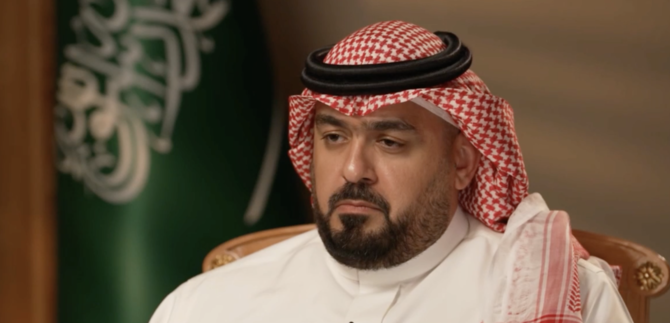RIYADH: Saudi Arabia aims to foster a dynamic private sector, create jobs for its citizens, and attract international talent as part of its Vision 2030 strategy, according to a top official.
Speaking during an interview with Fox News on the sidelines of the Saudi-US Investment Forum, Economy and Planning Minister Faisal Al-Ibrahim said the Kingdom has embarked on a transformative path to unlock its potential and shift its growth narrative beyond oil.
The forum was held on the occasion of US President Donald Trump’s visit to Saudi Arabia, during which he was accompanied by a delegation of leading business figures.
Al-Ibrahim said: “We want a private sector that’s dynamic. We’re a young population, but in about 20, 25, 30 years, we’ll start the aging process. What we should look like at that stage is a government and a private sector and a third sector, and academia that is leveraging fully generative AI and other technological tools toward productivity.”
He added: “But also that has created jobs for a lot of Saudis, and has been able to, in the process, attract a lot of talent to come to Saudi to make Saudi Arabia their home.”
The minister emphasized that diversification has already begun to yield results, with sectors such as tourism, culture, and technology, as well as sports and artificial intelligence, contributing significantly to gross domestic product.
“We would love to be competitive in a large and vibrant consumer market, such as that in the US,” the minister said, highlighting the Kingdom’s increasing connections with global markets, especially American capital markets.
Al-Ibrahim noted that the non-oil gross domestic product has surpassed 50 percent for the first time, but cautioned against complacency.
“We’re not over-celebrating that, but we’re acknowledging this as a milestone. What we want to see is more non-oil exports growing. More non-oil exports of our manufacturing, GDP,” Al-Ibrahim said.
The minister also emphasized the importance of service sector quality, adding: “We want to see user experience in the services side, especially on the tourism side, second to none. Still have a lot of work to do.”
He noted that both Crown Prince Mohammed bin Salman and President Donald Trump have spoken of “peace and prosperity” as tools to address global challenges, reinforcing the Kingdom’s alignment with international efforts toward stability.
“We’ve seen what dialogue has led to in terms of the US and UK deal, US and China deal, and what Saudi has led to also through dialogue in the region,” the minister added.
On regional developments, he commented on the US decision to lift sanctions on Syria and its potential impact.
“Something as strong and meaningful and material as lifting sanctions could help a country such as Syria to invest more capital in building the institutions they need to be a more stable country, but also bring more stability to the region and be a force for good,” Al-Ibrahim said.
Describing the relationship between the crown prince and President Trump, the minister added: “I see common values between both leaders, regardless of age and background, and I think that’s one of the things that really brings the mutual respect into the public eye.”
Addressing skepticism about the Kingdom’s evolution, the minister concluded: “Saudi Arabia is a long-term reliable partner, if you ask anyone who has dealt with the Kingdom, government, people, anyone who has visited here ... Saudi Arabia has always been and always will be a force for good, for innovation.”
























